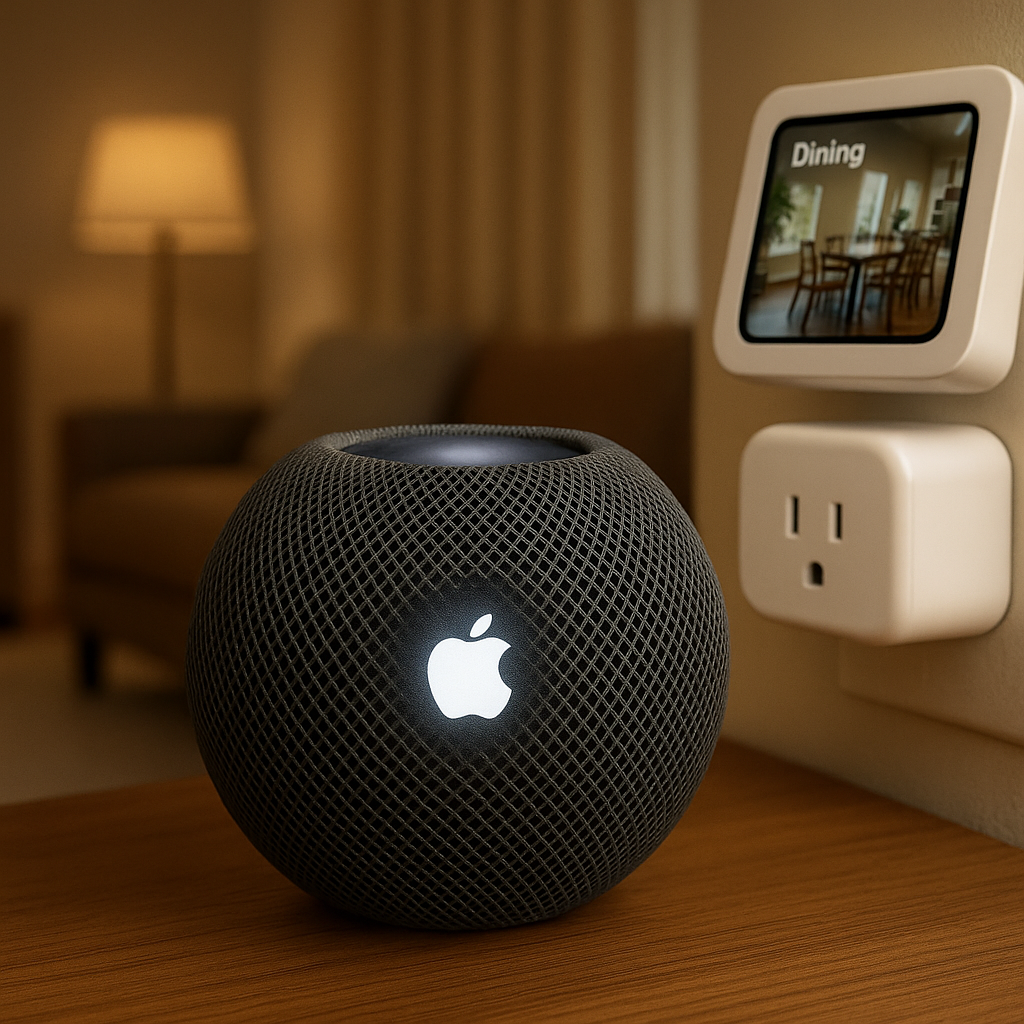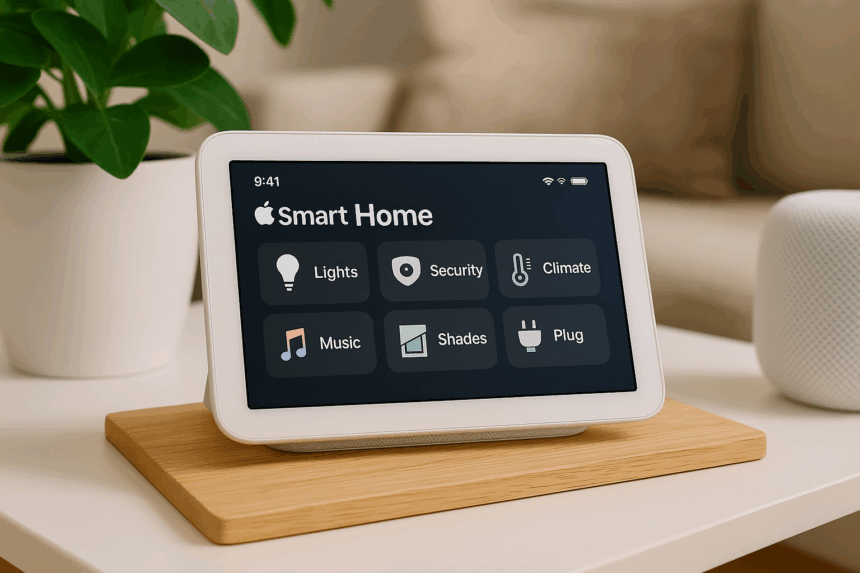Apple is moving deeper into the connected home market with new smart devices and a more advanced version of Siri. According to industry reports, the company is developing cameras, smart doorbells, and even a tabletop robot. These products would build on Apple’s HomeKit ecosystem and extend its role in home automation.
What’s Happening & Why This Matters
Apple’s Smart Home Experiments
Reports suggest that Apple is testing several smart home security devices, including cameras and doorbells with facial recognition. This feature could be used to automate daily tasks, such as unlocking doors when a family member arrives, turning off lights when everyone leaves, or even starting music when someone enters a room.
Apple’s strategy is being compared to Amazon’s past hardware efforts, which included the Astro robot and multiple sizes of Echo Show smart displays. Amazon also entered the home security market through its Ring and Blink cameras. However, Amazon scaled back some projects after struggling to justify costs. Apple, with its reputation for premium design and ecosystem integration, could take a different approach.
An AI Siri

The new devices are tied to an upgraded version of Siri that uses large language models (LLMs). These models are similar to the technology behind OpenAI’s ChatGPT and Microsoft’s Copilot. The result would be a “more personal Siri” with the ability to handle complex commands and context-driven tasks in the home.
Apple is reportedly testing two versions of the assistant. One, code-named Linwood, is built on Apple’s internal AI model. The other, Glenwood, uses third-party models such as Anthropic’s Claude. This dual-track development highlights Apple’s cautious but ambitious approach to AI, especially as it tries to catch up with rivals that have been more aggressive in rolling out generative AI features.
For Consumers
If these products reach market, Apple may change how people interact with smart home devices. Instead of using multiple apps or basic voice controls, users could rely on an AI-powered Siri that understands context and adapts to personal habits. For example, Siri could recognize who just entered the home and adjust lighting, temperature, or entertainment options without explicit commands.

The plans also illustrate Apple’s desire to expand its revenue streams beyond the iPhone and Mac. Hardware sales have slowed in some categories. The smart home sector presents an opportunity, especially as more households adopt connected devices.
Industry observers note that Apple has been careful to avoid launching products before they meet the company’s reliability and privacy standards. By blending AI-driven personalization with its privacy-first messaging, Apple may attract consumers wary of rivals that have faced criticism over data handling.
TF Summary: What’s Next
Apple’s smart home push is still in the testing phase, but expectations are growing. With enhanced Siri integration, facial recognition features, and possible robotic devices, the company could position itself as a leader in the next wave of home automation. The success of these devices will depend on Apple’s ability to balance innovation with consumer trust and usability.
As competitors like Amazon scale back experiments, Apple’s methodical approach may give it an edge. If the devices launch in the next year or two, they could improve how people experience smart homes — making automation more intuitive and AI more personal.
— Text-to-Speech (TTS) provided by gspeech


